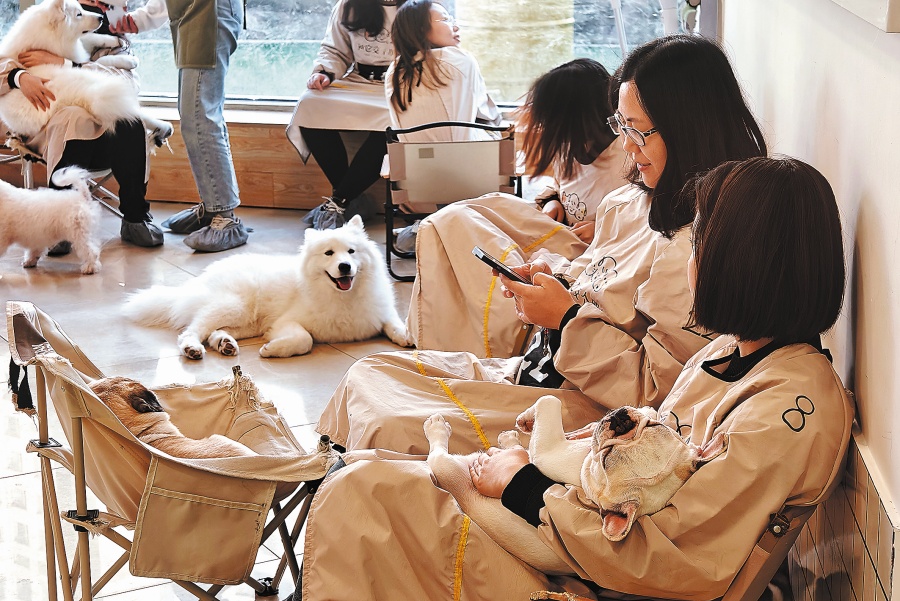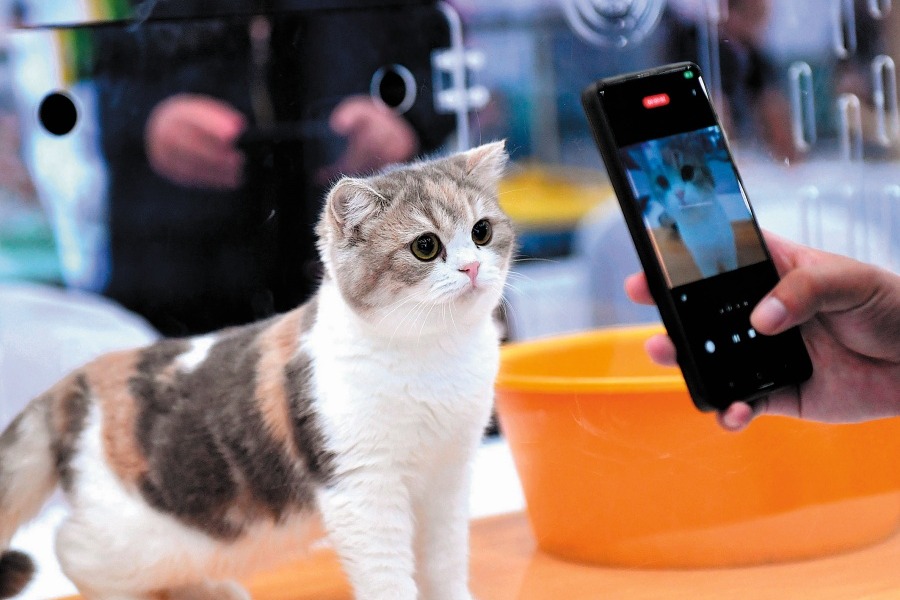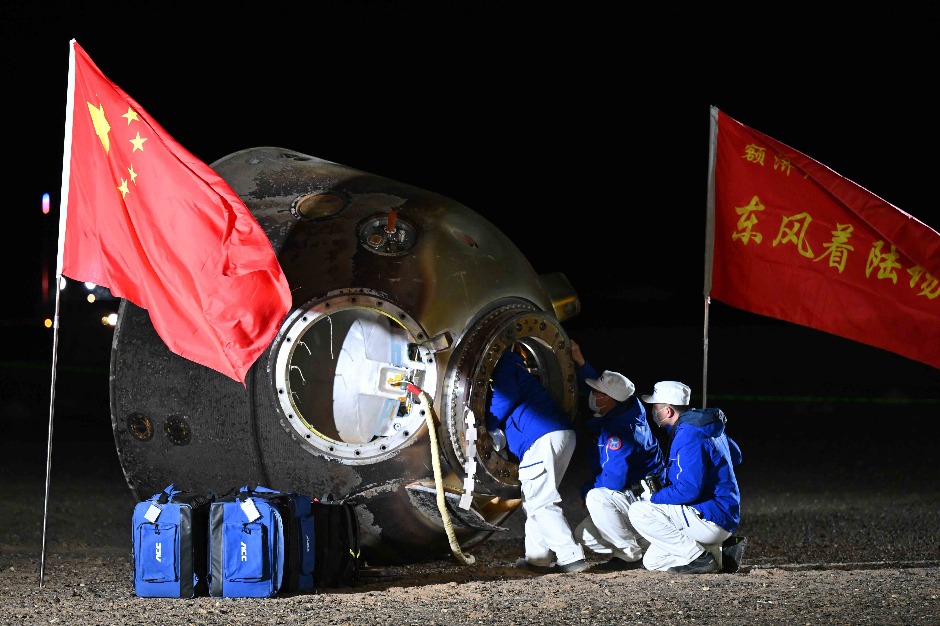Pet economy purrs ahead as cat, pooch cafes spread
Rise of responsible ownership, tailored services drive boom in sector, experts say


With the pet population soaring and the pet economy flourishing in China, a wave of pet cafes has surged across the country, offering popular retreats where visitors can unwind while mingling with adorable animals.
There are over 3,500 cat cafe-related companies and more than 200 dog cafe-related businesses in the country, data from Qichacha, a leading platform offering company information inquiry services, showed.
Kwak Nakyung, a 24-year-old international student from the Republic of Korea, visits a stray cat cafe in Beijing twice a week with her friends. She is particularly drawn to a feline named Nainai.
"It is a quiet, clean and healing space," Kwak said. "I learned that many of the cats there are rescued strays, and it warms my heart to see them living better lives."
She usually orders a cup of coffee and a dessert, while enjoying a relaxing afternoon in the company of the cats.
The cafe she visits, Paw Infinity, has rescued nearly 30 stray cats since opening in June.
"We have seen a steady stream of customers," said Ye Jian, the cafe's owner. "Some come for the soothing presence of the cats, while others visit to donate food or adopt them."
"All the cats here are vaccinated, and we ensure they are treated with respect. We share details of each cat's personality with our guests, letting them know which ones enjoy being cuddled or fed."
The cafe's revenue directly supports the adoption and care of the cats, he added.
With the "adopt, don't shop" philosophy gaining traction, cafes focusing on stray animal adoption are becoming a growing trend in China. "It's a mutual healing process that benefits both people and animals," said Han Zihao, another Beijing cat cafe owner who has adopted over 60 stray or abandoned cats.
Unlike traditional stray animal rescue stations, which are often located in suburban areas and lack a stable income, stray animal cafes leverage commercialization to attract more visitors and generate steady revenue, Han said. This sustainable model helps ensure the long-term growth and stability of rescue efforts.
Han used to visit cat cafes in Japan, where the industry is well-established and thriving. He learned about management, including providing shoe covers for visitors and setting rules for customers interacting with the cats.























